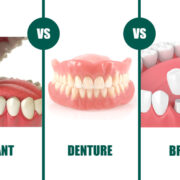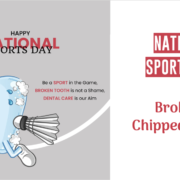Dental implants are distinct from other dental procedures. Unlike traditional restorative dentistry, for example, which focuses on fixing or restoring teeth one at a time, implants involve placing a single device into multiple locations in the mouth to achieve the desired outcome. The efficacy of any procedure is directly tied to its degree of complication. In other words, anything that is more complicated than most other processes poses greater risks and challenges. Learn more about this complex procedure by reading our comprehensive guide below…
What is a full-mouth dental implant?
Dental implants are artificial roots that are surgically implanted into the gums and jawbone in order to hold a replacement tooth in place. When properly installed, dental implants function to replace the natural roots that were lost or removed due to severe tooth decay, periodontal disease, or injury. Full mouth Implants replace all the teeth in either jaw. Dr. Chirag Chamria is one of the leading dental clinics for full mouth implants in Mumbai, India. Although a greater number of implants such as 6 or 8 is ideal for replacing all teeth in a single jaw, fixed teeth with Full mouth implants can also be done with a minimum of only four dental implants in a single jaw.
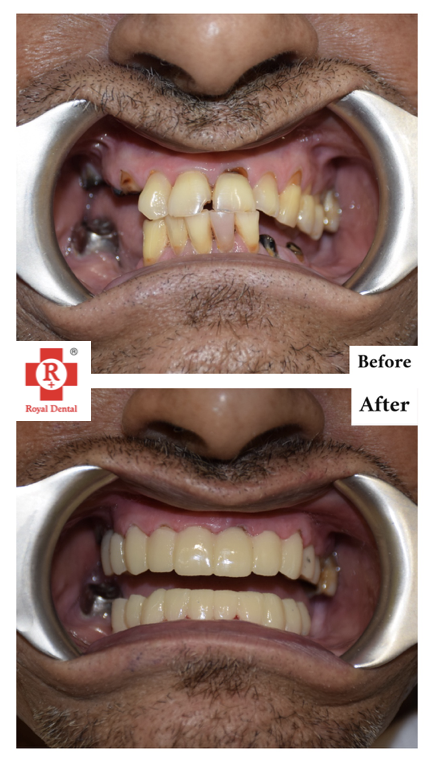
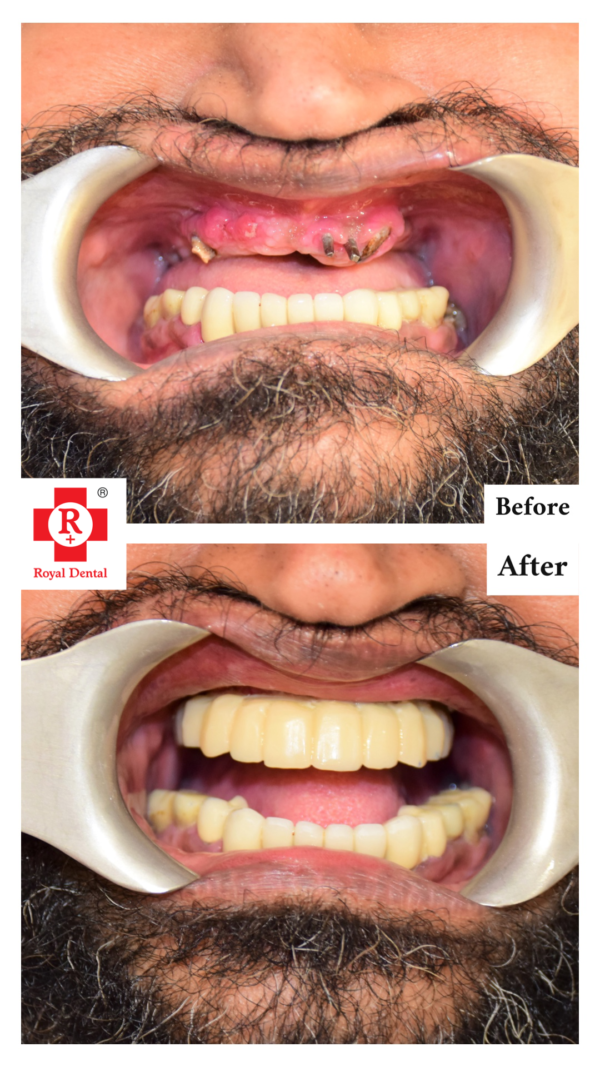
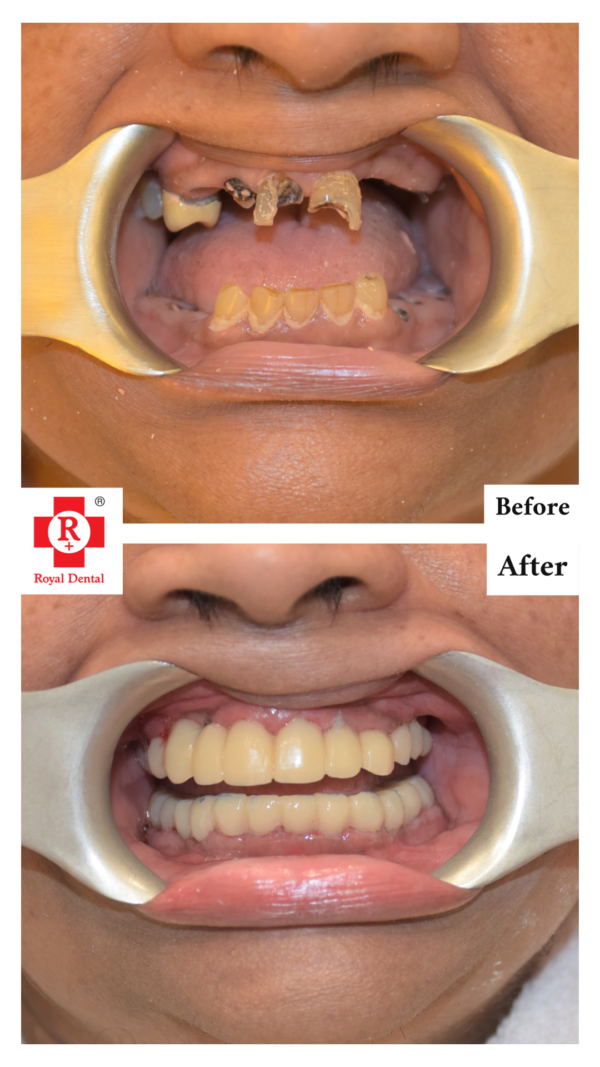
This concept of replacing all teeth with full mouth implants is called All-on-4 Concept. It is a long-lasting treatment solution that provides permanent, fixed artificial teeth. specially for patients who are unconformable wearing removable dentures. It also allows the teeth to be fixed immediately over the full mouth implants and does not usually require a waiting period for the healing to complete.
When to consider a full Mouth Dental Implant
A Full Mouth Dental Implant is the only realistic option when all of the teeth in the mouth are either lost or beyond repair due to disease, decay, or trauma. A Full Mouth Dental Implant is also recommended when you want to replace all of the teeth in the mouth with dental implants for aesthetic reasons. In both cases, a Full Mouth Dental Implant may be the best choice.
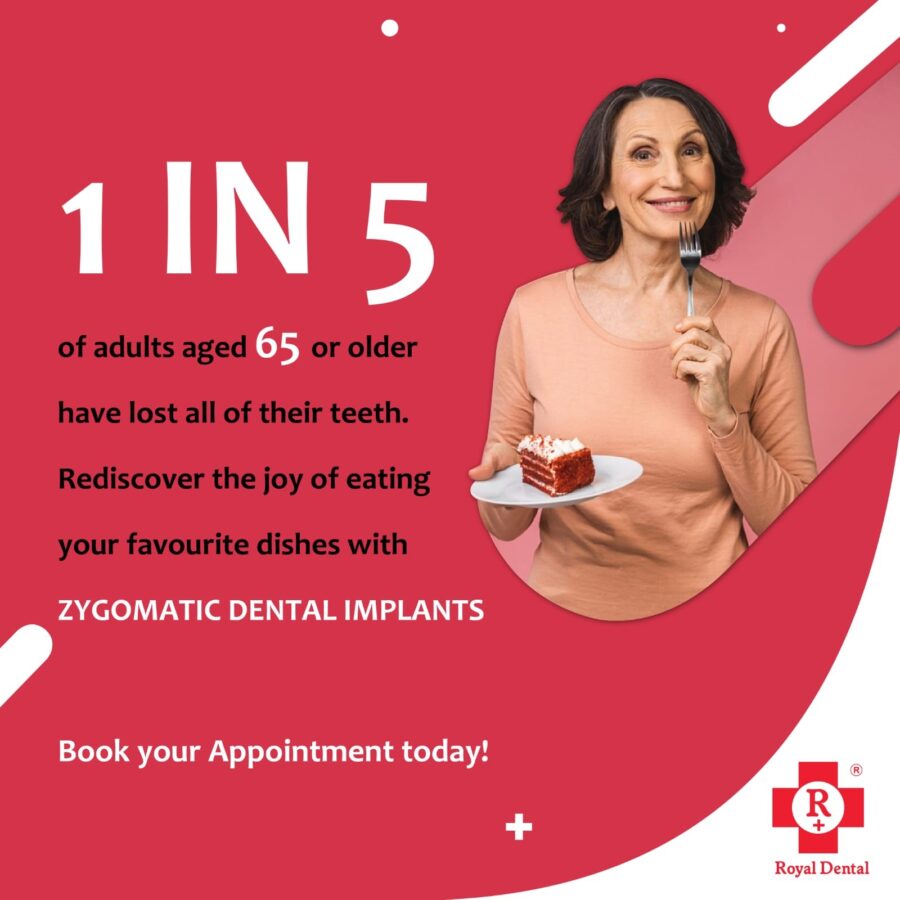
Oral Health before Full Mouth Dental Implants
Before a Full Mouth Implant, it is absolutely imperative that all teeth in the mouth be healthy and intact. If any of them are broken, decayed, diseased, or otherwise unhealthy, they need to be removed and/or treated. If any teeth are left untreated after a Full Mouth Dental Implant, they will become infected and die anyway. So, if you want to replace all of the teeth with dental implants. You need to have all of the teeth removed and healthy. Moreover, because it requires several surgeries. You need to have a few healthy teeth to hold you over until you can have the implants installed.
Understanding the Risks of Dental Implants
Any surgery carries an inherent risk. Nevertheless, a Full Mouth Dental Implant is no more dangerous than other complex surgical procedures. There are many reasons for this. For one, the sheer number of surgical procedures involved in a Full Mouth Dental Implant makes it difficult to keep the mouth completely clean and free of infection. The sheer number of devices placed in the mouth also makes it more difficult to place each implant properly. Finally, the sheer number of surgical procedures involved in a Full Mouth Implant makes it more difficult, thus choose a dentist who can do this in limited time.
Full Mouth Dental Implants Procedure
A Full Mouth Dental Implant is a multi-step procedure that is typically performed over the course of several visits to the dental office. First, the doctor will use a laser or scalpel to remove the soft tissue in the area where the implants will be installed. Then, the doctor will place an implant into each of the areas where teeth will be replaced. Next, the doctor will place a crown on top of each implant to protect the implant from being pushed back into the jawbone. Finally, the doctor will wait for each implant to fuse with the surrounding jawbone.
How to care for subperiosteal implants
As always, practice good dental hygiene and be sure to follow the post-op instructions provided by your dental professional. They may recommend that you eat only soft foods for a short period of time. And if you’re a smoker, they may urge you to quit smoking as it can have adverse effects on your implants. Your dental professional will remove the sutures from your gums after they’ve healed and will be able to check for infection and proper growth at that time.
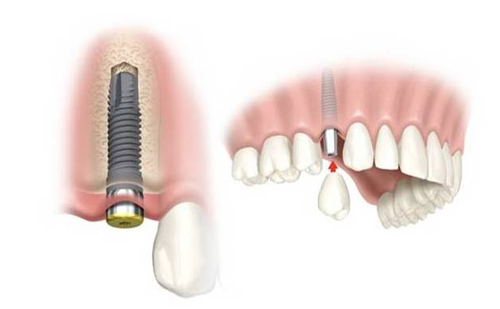
There is no one-size-fits-all solution for replacement teeth. The person best positioned to determine the dental implant option that is right for you is your dentist and/or your oral surgeon. But, now that you know the difference between the two most recommended types of implants. You’re better prepared for a constructive conversation. Be sure to ask any questions that arise so you can come to an informed decision with your dentist. Whatever dental implant you and your dental professional end up choosing, we hope it makes you smile.
Recovery time and care after full mouth dental implants
Every patient responds to a Full Mouth Dental Implant differently. However, on average, it takes most patients 4-6 months to fully recover from a Full Mouth Implant. During this time, you will be limited in what you can eat due to your healing gums, jaw, and implants. During this period, you will need to follow a soft diet that is easy on the gums and jaw. You will also need to take extra care each time you eat. Depending on the extent of the Full Mouth Implant. You may also need to wear a soft retainer at night to keep the implants in place until they fuse with your jawbone.
The Bottom Line
A Full Mouth Implant is the only viable treatment option for patients who have lost all of the teeth in the mouth. However, it is not a viable treatment option for patients who have decayed or broken teeth. Only the most severe cases are treated with a full-mouth dental implant. That’s because it requires patients to have a significant amount of their gums and jawbone removed. They are generally used as a last resort to replace all teeth when no other treatment is possible.
Suggested Article –
Difference between Crowns and Dental Implants?
Follow Us For More Updates

